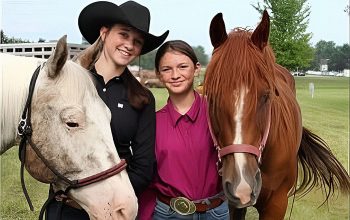Last Friday, Wright County’s state congressional delegation held a town hall in Belmond sponsored by the county Farm Bureau. Senator Dennis Guth (R-Klemme) and Representative Terry Baxter (R-Garner) updated residents as to what they’ve been up to at the capitol through the ninth week of the session.
At this point, proposed legislation has passed the funnel phase. Floor debates can now take place as bills have passed through subcommittee and committees. Both reps listed a variety of bills they are concentrating on. (Many of these have been discussed in their weekly updates that the Monitor publishes).
To highlight a few, Guth discussed Senate File 555 that he penned. This bill would prohibit employers from mandating the COVID vaccine for employees. Guth has a history of pushing against vaccine requirements. During the discussion of SF 555, Guth acknowledged that the bill was rewritten to no longer include all non-COVID vaccinations. He went to allege that thousands of people have died from the COVID vaccine. He also called the science behind the vaccine “wishful thinking” and said that masks in public settings do not work.
During his summary, Baxter discussed criminal justice reform that he has been working on. Though the bill didn’t make it through the funnel this year, he discussed commutation of life sentences for adults. This is a very difficult process explained Baxter. “We need to be smart on crime not just tough.” He described meeting lifers that have achieved multiple degrees and he feels could be great mentors and contributors to society.
During the question phase, the audience had several inquiries and strong opinions. A question whether the local lawmakers support a biofuel mandate was asked. This would require a certain number of gallons of renewable fuels like corn-based ethanol be blended into the state’s fuel supply. The person asking the question made it clear he is adamantly opposed to required biofuels. Guth explained that bill was recently changed after several groups, including trucking companies and aviation groups, expressed their opposition. He added that now an incentive is being considered instead of a mandate. Guth said he thinks the state should increase the amount of renewable fuels used, “but we don’t want to hold a gun to people’s heads.”
A lengthy discussion was held about propose bill House File 643. The bill would take the amount people pay for a drainage assessment off their property taxes. Both Wright County Supervisor Dean Kluss and Assessor Shari Plagge spoke out against the bill. Plagge noted that Wright County would be adversely affected by the legislation since so much of the county is comprised of drainage districts. She said a lot of taxes that go to secondary roads and schools would be lost and have to be recouped elsewhere. “The rural levy rate will drop drastically, and the city and residential rates will skyrocket to compensate,” Plagge explained to Guth and Baxter. Guth noted he was going to work on killing the bill.
Some members of the crowd questioned the local politicians’ support of the recently passed voting issues bill. The governor signed the bill into law last week. The bill will reduce the number of early voting days from 29 days to 20 days. It will also close polling places an hour earlier on Election Day. Baxter alleged that the law addresses misconduct by auditors and more closely follows national trends now. Various audience members opined that the net effect of the bill will just make it a little harder to vote.
A question on a ‘constitutional carry’ bill was asked. Proposed legislation would eliminate the need for Iowans age 21 or older to obtain a government permit to acquire or carry a firearm. County resident Bob Ritter said, “We all know some people who shouldn’t carry a gun. This would let anybody go out and carry, loaded or unloaded. You should have to know the laws first.” Baxter called himself neutral on the matter currently. Guth said he hadn’t read the bill yet but “I assume I’ll support it.” Someone for the crowd commented that they seem comfortable making it more difficult to vote but easier to get a firearm.
At the end of the session, the legislators encouraged citizens to continue to contact them with feelings and opinions as that helps them learn more about legislation and take the pulse of their districts. (You can always find Baxter and Guth’s contact info elsewhere in the paper with their weekly write-ups).


